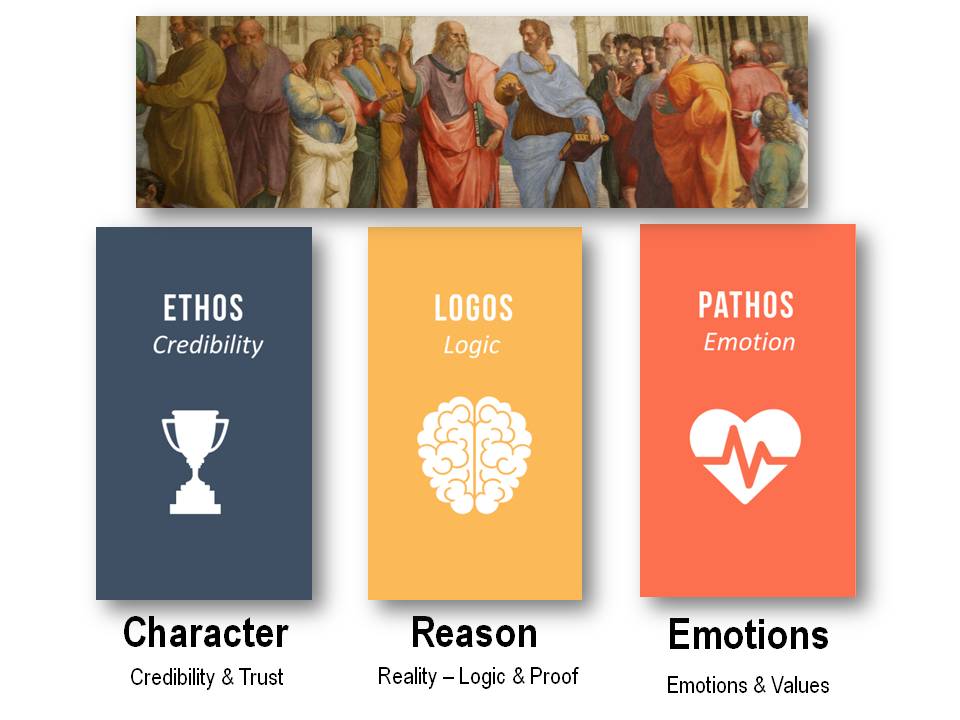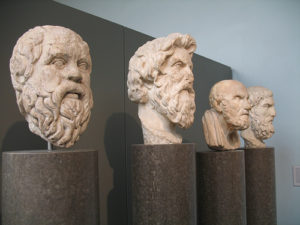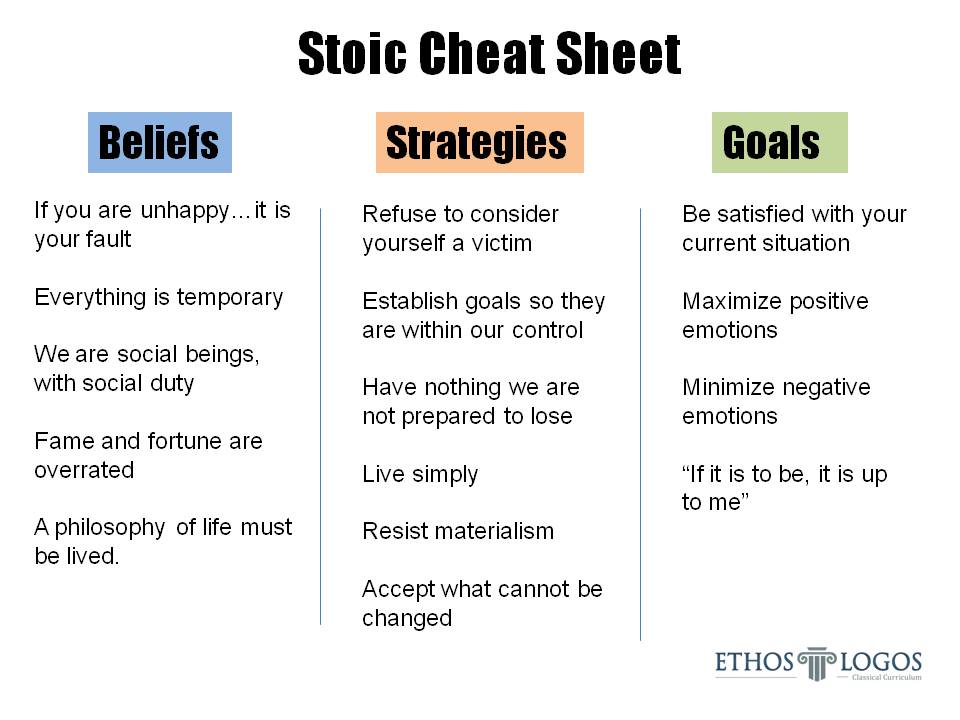Stoic Philosophy
The Classic Art of Persuasion

Aristotle introduced the world to the idea of using appeals to get ideas across. The art of Rhetoric was Aristotle's formalized process of winning an argument based on the skills mastered by the presenter.
The third and final stage of the Trivium found in our Classical Education schools is the culmination of all that has been learned in lower grades into an articulated ability to put forth ideas. The Rhetoric stage is where scholars take all they've learned and are able to communicate ideas with passion and persuasion.
Aristotle defined the three forms of appeals as;
-
LOGOS is an argument based on REASON
-
ETHOS is a tool of persuasion that is based on convincing listeners of the MORAL CHARACTER of the person making the claim
-
PATHOS is an argument based on EMOTIONAL APPEAL.
By naming our firm Ethos Logos we are telling the world that our system is rooted in both REASON and CHARACTER development.
REASON is the truth that stands over time.
A focus and modeling of CHARACTER ensure our scholars are ready for the world of tomorrow.
Stoicism
Stoicism is a school of Hellenistic philosophy founded by Zeno in Athens in the early 3rd century BC. Stoicism is a philosophy of personal ethics informed by its system of logic and its views on the natural world. According to its teachings, as social beings, the path to eudaimonia (happiness) for humans is found in accepting the events as they are, by not allowing oneself to be controlled by the desire for pleasure or fear of pain, by using one's mind to understand the world and to do one's part in nature's plan, and by working together and treating others fairly and justly.
The Stoics are especially known for teaching that "virtue is the only good" for human beings, and that external things—such as health, wealth, and pleasure—are not good or bad in themselves, but have value as "material for virtue to act upon".
 Alongside Aristotelian ethics, the Stoic tradition forms one of the major founding approaches to Western virtue ethics. The Stoics also held that certain destructive emotions resulted from errors of judgment, and they believed people should aim to maintain a will (called prohairesis) that is "in accord with nature". Because of this, the Stoics thought the best indication of an individual's philosophy was not what a person said, but how a person behaved. To live a good life, one had to understand the rules of the natural order since they thought everything was rooted in nature.
Alongside Aristotelian ethics, the Stoic tradition forms one of the major founding approaches to Western virtue ethics. The Stoics also held that certain destructive emotions resulted from errors of judgment, and they believed people should aim to maintain a will (called prohairesis) that is "in accord with nature". Because of this, the Stoics thought the best indication of an individual's philosophy was not what a person said, but how a person behaved. To live a good life, one had to understand the rules of the natural order since they thought everything was rooted in nature.
Many Stoics—such as Seneca and Epictetus—emphasized that because "virtue is sufficient for happiness", a sage would be emotionally resilient to misfortune. This belief is similar to the meaning of the phrase "stoic calm", though the phrase does not include the "radical ethical" Stoic views that only a sage can be considered truly free and that all moral corruptions are equally vicious.

Stoicism flourished throughout the Roman and Greek world until the 3rd century AD, and among its adherents was Emperor Marcus Aurelius. It experienced a decline after Christianity became the state religion in the 4th century AD.
(Wikipedia)


We crafted and perfected a Stoic Quiz and use it as a tool to work on ourselves and our organization. If you identify with the ideas of the Stoic philosophers, take the attached quiz for yourself and see how you score. Remember, the practice of Stoicism is a lifelong endeavor. You can always improve!
Our teams take these assessments annually and anonymously. The real growth in our organization came from the discussions of how we see ourselves individually against how we show up as a team. The gaps in scoring are very telling. For the best results, try to get a large sample size from people on your team. The scores tell a big story.

